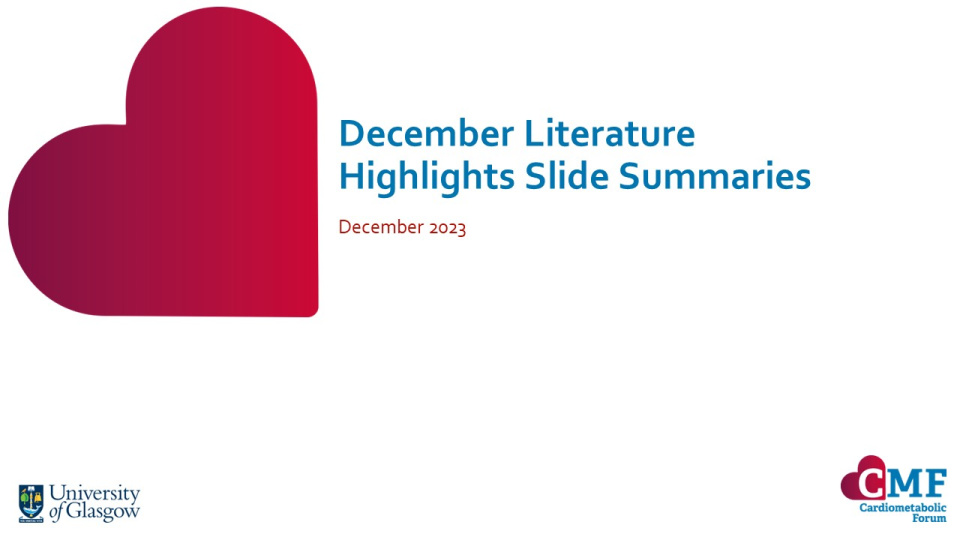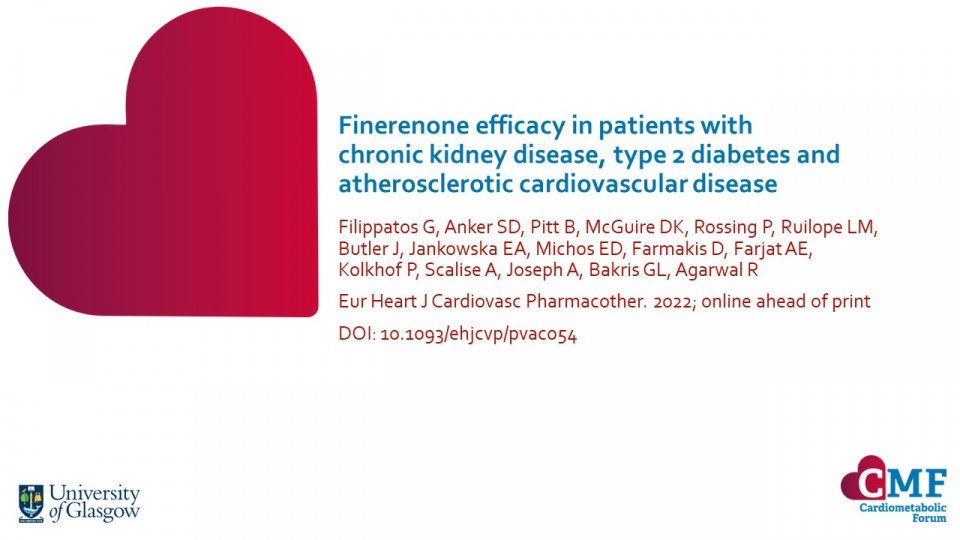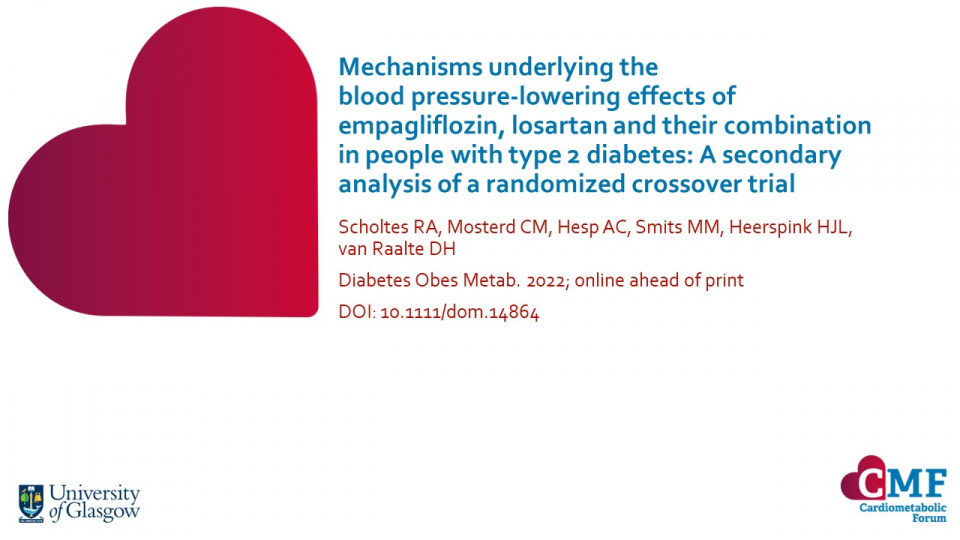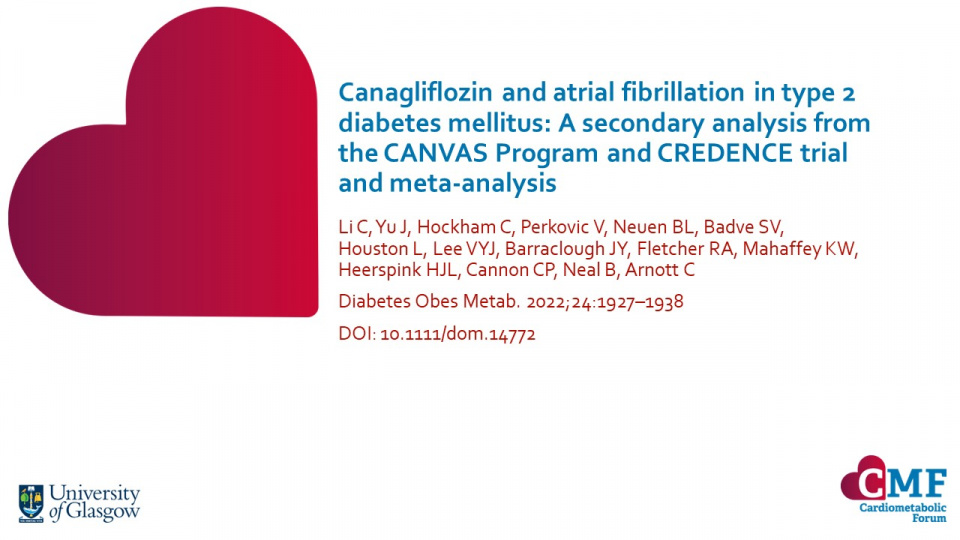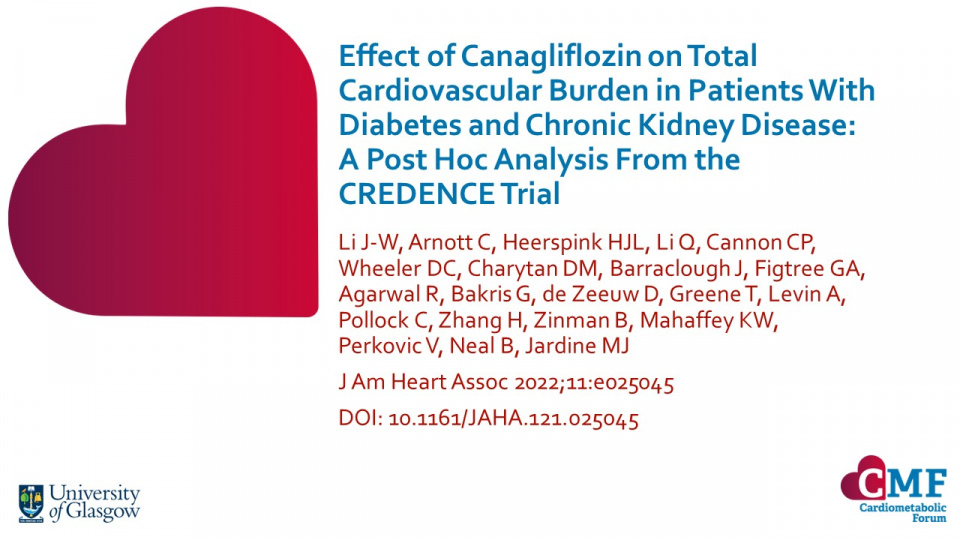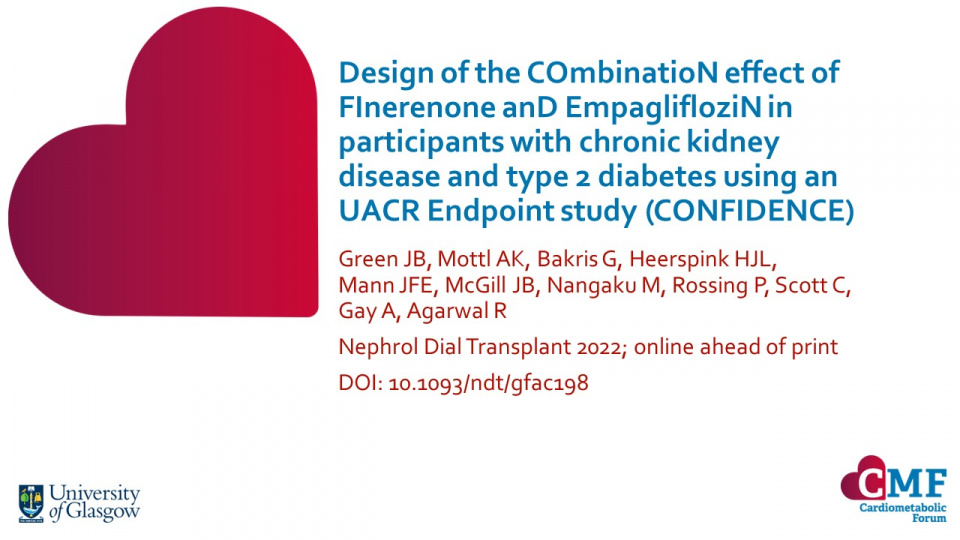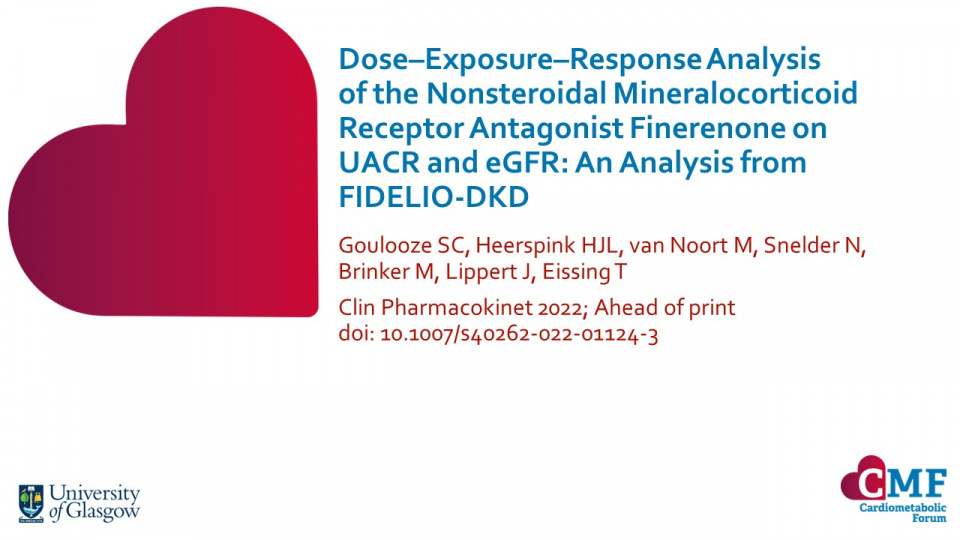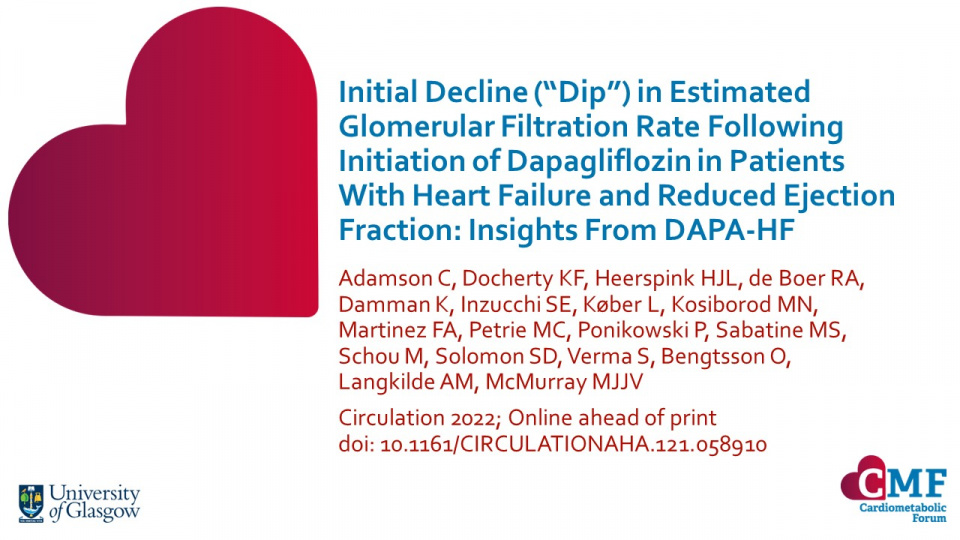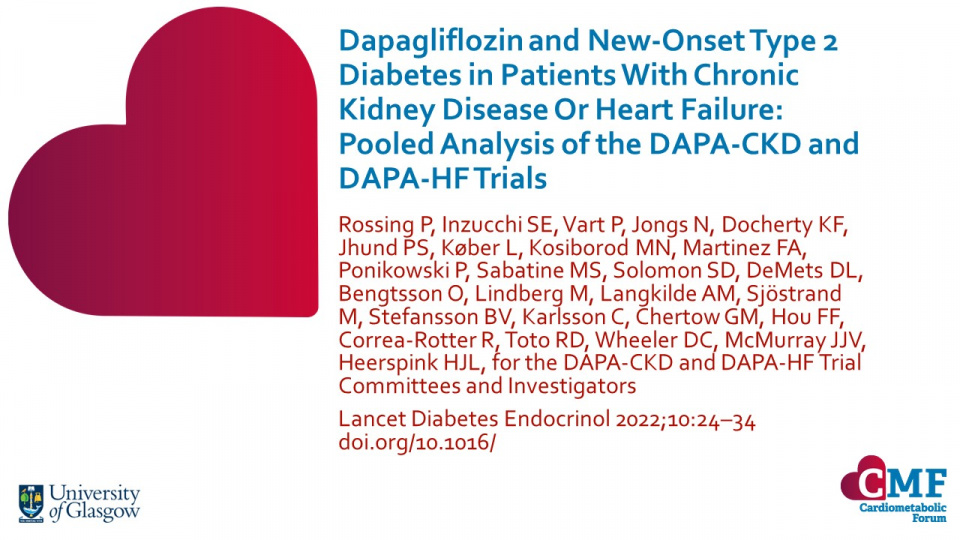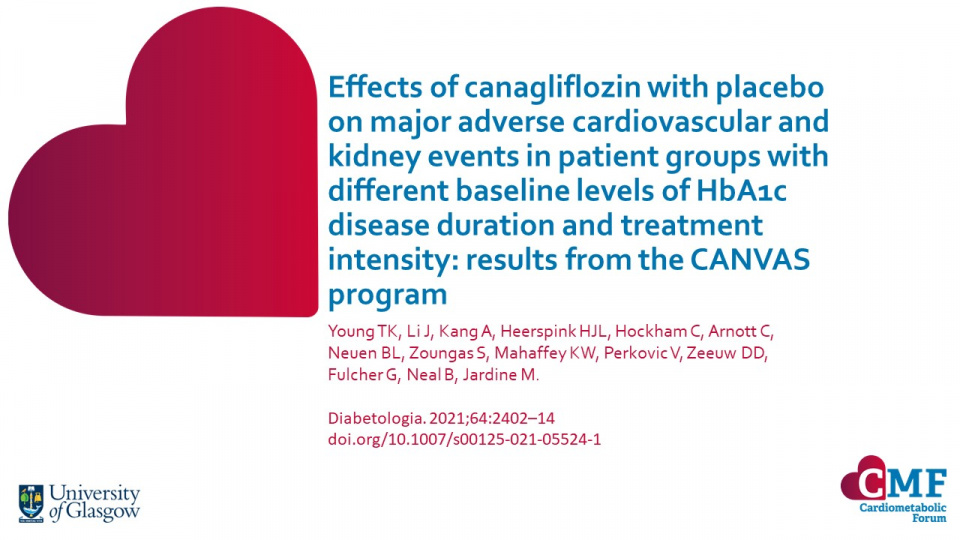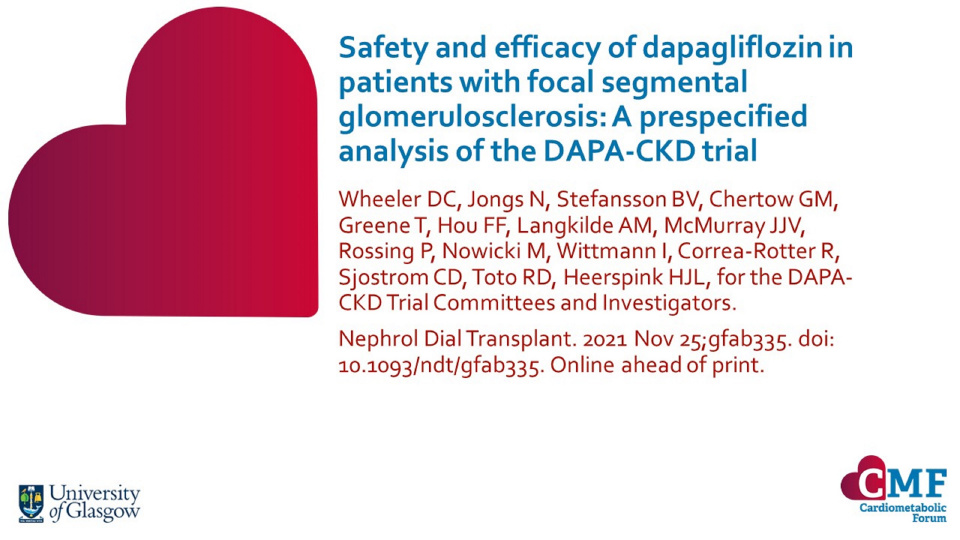Publications
Stay up to date with our literature reviews which are curated by experts to feature the most important publications released each month. Explore our publications for access to concise summary slides for your own use.
Cost-Effectiveness of Dapagliflozin as a Treatment for Chronic Kidney Disease: A Health-Economic Analysis of DAPA-CKD
Clin J Am Soc Nephrol. 2022; online ahead of print DOI: 10.2215/CJN.03790322
Dapagliflozin has been shown to reduce CKD progression and KRT requirement when added to standard therapy in patients with CKD in the DAPA-CKD trial. This analysis was designed to estimate the cost-effectiveness of dapagliflozin for the treatment of CKD from payer perspectives in the UK, Germany and Spain.
Mechanisms underlying the blood pressure-lowering effects of empagliflozin, losartan and their combination in people with type 2 diabetes: A secondary analysis of a randomized crossover trial
Diabetes Obes Metab. 2022; online ahead of print DOI: 10.1111/dom.14864
This prespecified analysis of the RECOLAR study investigated the effects of the sodium-glucose co-transporter-2 inhibitor (SGLT2i), empagliflozin, the angiotensin receptor blocker (ARB), losartan, and their combination on blood-pressure lowering, while studying the mechanisms potentially involved.
Canagliflozin and atrial fibrillation in type 2 diabetes mellitus: A secondary analysis from the CANVAS Program and CREDENCE trial and meta-analysis
Diabetes Obes Metab. 2022;24:1927–1938 DOI: 10.1111/dom.14772
A pooled analysis from the CANVAS Program and CREDENCE trial found that canagliflozin did not have a significant effect on the incidence of atrial fibrillation/atrial flutter (AF/AFL) in patients with type 2 diabetes and high risk of cardiovascular disease or chronic kidney disease.
Effect of Canagliflozin on Total Cardiovascular Burden in Patients With Diabetes and Chronic Kidney Disease: A Post Hoc Analysis From the CREDENCE Trial
J Am Heart Assoc 2022;11:e025045 DOI: 10.1161/JAHA.121.025045
Cardiovascular disease is highly prevalent, and represents a major burden in patients with both T2D and CKD. In the CREDENCE trial, canagliflozin reduced the risk of first composite cardiovascular events; this post hoc analysis evaluated the effect on total (first and recurrent) events. During the trial, a total of 883 cardiovascular events occurred in 634 patients; 72% were first and 28% were subsequent events. Analysis showed canagliflozin reduced first and total cardiovascular events by 26% and 29%, respectively, with consistent results across patient subgroups and by baseline cardiovascular history.
These findings provide further support for the benefit of continuing canagliflozin therapy after an initial event to prevent recurrent CV events.
Design of the COmbinatioN effect of FInerenone anD EmpaglifloziN in participants with chronic kidney disease and type 2 diabetes using an UACR Endpoint study (CONFIDENCE)
Nephrol Dial Transplant 2022 Jun 14;gfac198. Online ahead of print. doi: 10.1093/ndt/gfac198.
CONFIDENCE is a new trial currently recruiting. The aim is to demonstrate that 6 months’ dual therapy with finerenone and empagliflozin is superior for reducing albuminuria versus either agent alone.
Despite available interventions, people with T2D remain at risk of chronic kidney disease, which puts them at further risk of kidney failure, CV morbidity, and all-cause mortality. There is therefore a need to slow or attenuate the progression of chronic kidney disease (CKD) and reduce CV morbidity and mortality in this population.
Finerenone and sodium-glucose cotransporter-2 inhibitors (SGLT2i) can both reduce kidney and CV risks, acting via both shared and distinct pathophysiological pathways. Results from post hoc subgroup analyses and a preclinical model suggest dual therapy may provide additive renoprotective effects than using either class alone.
Dose–Exposure–Response Analysis of the Nonsteroidal Mineralocorticoid Receptor Antagonist Finerenone on UACR and eGFR: An Analysis from FIDELIO‑DKD
Clin Pharmacokinet 2022; Ahead of print doi: 10.1007/s40262-022-01124-3
The results of this model-based analysis quantified the dose–exposure–response relationship for urine albumin-to-creatinine ratio (UACR) and estimated glomerular filtration rate (eGFR). Overall, the relationship between finerenone exposure and UACR and eGFR effects was not modified by sodium-glucose co-transporter-2 inhibitor (SGLT2i) use and demonstrated independent and additive effects.
Initial Decline (“Dip”) in Estimated Glomerular Filtration Rate Following Initiation of Dapagliflozin in Patients With Heart Failure and Reduced Ejection Fraction: Insights From DAPA-HF
Circulation 2022; Online ahead of print doi: 10.1161/CIRCULATIONAHA.121.058910
The results of this subgroup analysis from DAPA-HF show that – although estimated glomerular filtration rate (eGFR) decline is generally associated with poorer prognosis in most situations – an initial dip with a sodium-glucose co-transporter-2 inhibitor (SGLT2i) may be associated with slower rate of decline in kidney function.
Dapagliflozin and New-Onset Type 2 Diabetes in Patients With Chronic Kidney Disease Or Heart Failure: Pooled Analysis of the DAPA-CKD and DAPA-HF Trials
Lancet Diabetes Endocrinol 2022;10:24–34 doi.org/10.1016/
Chronic kidney disease and heart failure are insulin resistant states associated with high incidence rates of diabetes. Rossing et al. carried out a two Phase 3, randomised, double-blind, placebo-controlled trials assessed the effect of dapagliflozin on new-onset type 2 diabetes, in a pooled analysis of data from 6,608 individuals.
Effects of canagliflozin with placebo on major adverse cardiovascular and kidney events in patient groups with different baseline levels of HbA1c disease duration and treatment intensity: results from the CANVAS program
Diabetologia. 2021;64:2402–14 doi.org/10.1007/s00125-021-05524-1
This study by Young et al. shows canagliflozin to have beneficial CV and kidney outcomes in patients with T2DM across a range of diabetes complexities with an underlying risk of CV disease.
Safety and efficacy of dapagliflozin in patients with focal segmental glomerulosclerosis: A prespecified analysis of the DAPA-CKD trial
Nephrol Dial Transplant. 2021 Nov 25;gfab335. DOI: 10.1093/ndt/gfab335.
This study by Wheeler et al. found that dapagliflozin numerically, but not significantly, reduced the rate of chronic decline of eGFR compared to placebo among DAPA-CKD participants with FSGS.

